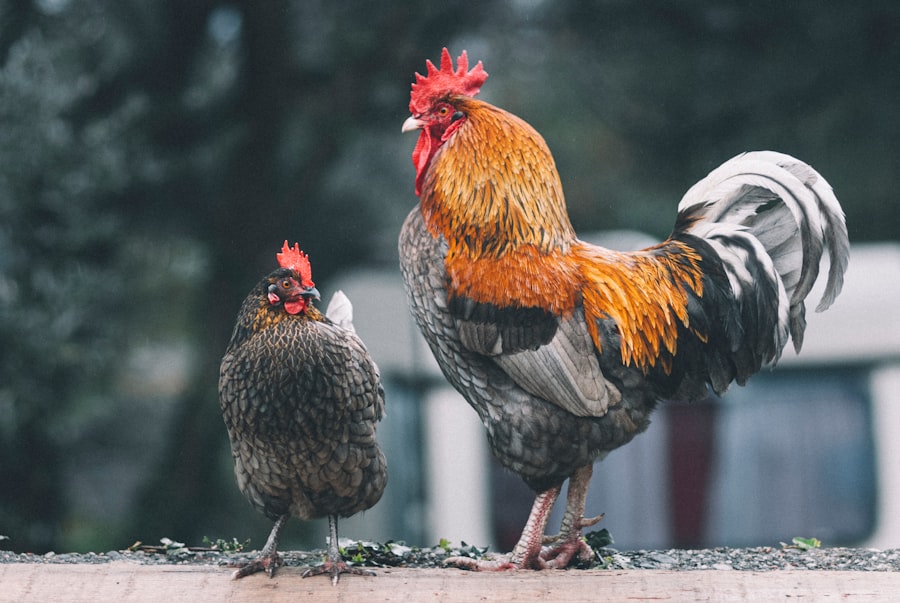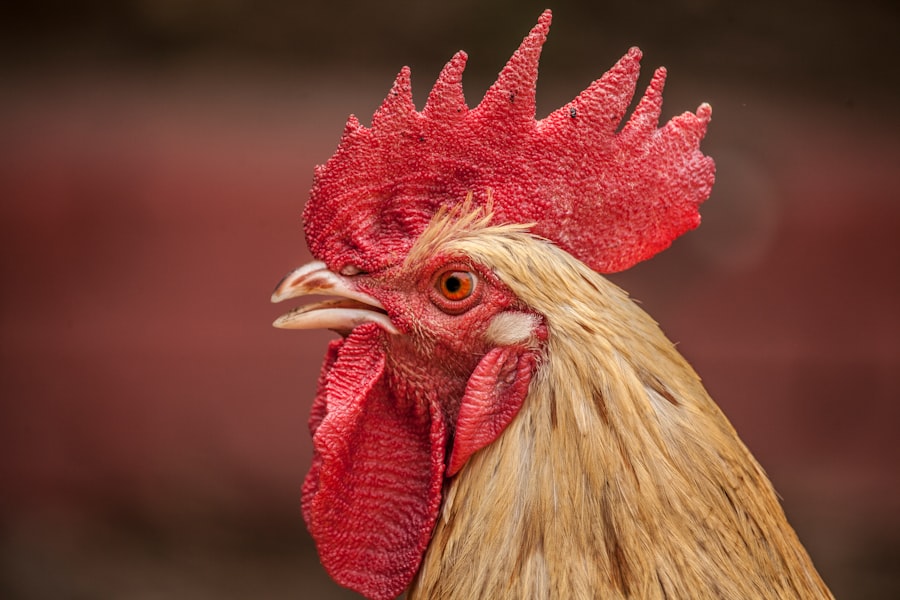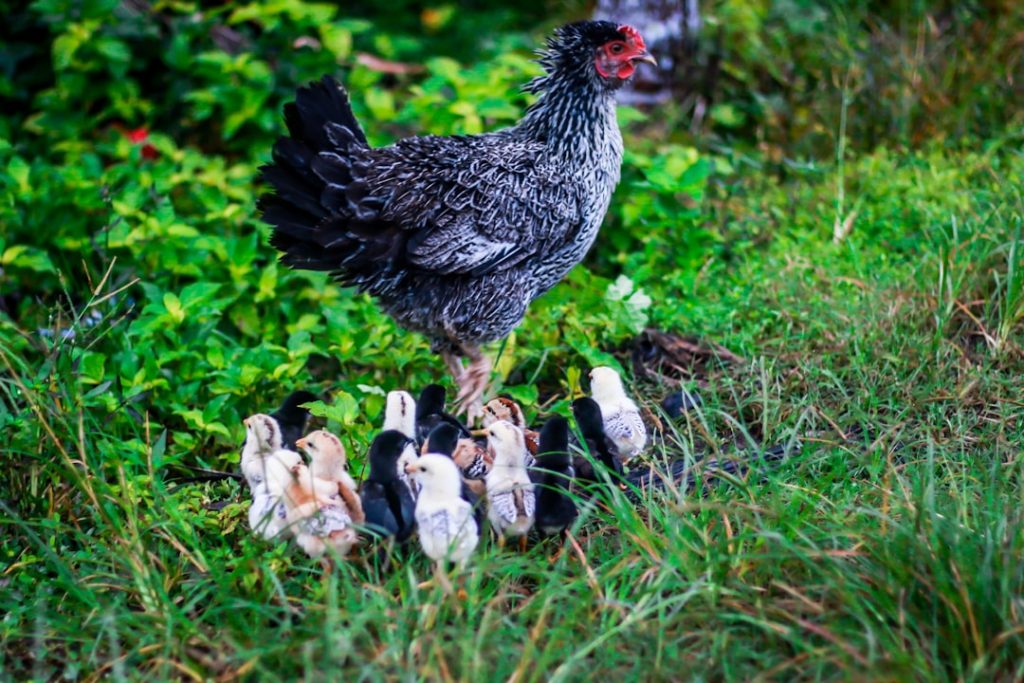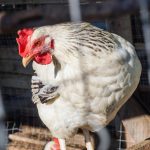Chickens are social creatures that thrive in structured environments. They establish a hierarchical system known as the pecking order, which consists of dominant and submissive individuals. Understanding this social structure is essential for maintaining a peaceful chicken coop.
Dominant chickens assert their position by pecking at subordinate birds, while submissive chickens typically avoid confrontation and may display signs of stress or fear. Observing and comprehending these behaviors is crucial for ensuring the well-being of all flock members. Chickens are also highly territorial animals and may exhibit aggression when they perceive their space to be threatened.
This territorial behavior can result in fights and injuries within the flock if not properly managed. By recognizing and addressing the natural behaviors of chickens, caretakers can create an environment that reduces stress and promotes peaceful coexistence among the birds. Providing adequate space, food, and resources for all chickens is vital for maintaining harmony within the flock.
Table of Contents
- 1 Identifying and treating chicken wounds
- 2 Creating a peaceful chicken environment
- 3 Providing distractions for chickens
- 4 Using protective gear for injured chickens
- 5 Implementing social hierarchy management
- 6 Seeking professional advice and support
- 7 FAQs
- 7.1 What are some common reasons why chickens peck at each other’s wounds?
- 7.2 How can pecking at wounds affect the injured chicken?
- 7.3 What are some strategies to prevent chickens from pecking at each other’s wounds?
- 7.4 Are there any products or remedies that can help deter chickens from pecking at wounds?
- 7.5 When should I seek veterinary care for a chicken with pecked wounds?
Key Takeaways
- Chickens have a natural pecking order and social hierarchy that should be understood and respected by their caretakers.
- Prompt identification and treatment of chicken wounds is crucial to prevent infection and promote healing.
- A peaceful chicken environment can be created by providing adequate space, shelter, and access to food and water.
- Distractions such as hanging treats or toys can help reduce aggression and boredom in chickens.
- Protective gear such as chicken saddles or hen aprons can be used to protect injured chickens from further harm.
- Social hierarchy management can be implemented by introducing new chickens carefully and providing multiple feeding and watering stations.
- Seeking professional advice and support from a veterinarian or experienced chicken keeper can help address any behavioral or health issues in chickens.
Identifying and treating chicken wounds
Common Injuries in Chickens
Pecking wounds, scratches, and cuts are common injuries that can occur in chickens, often as a result of fights or aggressive behavior within the flock.
Treating Chicken Wounds
When identifying wounds, it’s essential to act quickly to prevent infection and further complications. Treatment involves cleaning the affected area with a mild antiseptic solution and applying a suitable wound dressing.
Caring for the Injured Chicken
Isolating the injured chicken from the rest of the flock is vital to prevent further pecking or aggression towards the wounded bird. Providing a quiet and stress-free environment is crucial for their recovery. Monitoring the wound for signs of infection and seeking veterinary care if necessary is essential for ensuring the well-being of the injured bird.
Creating a peaceful chicken environment

Creating a peaceful chicken environment involves providing adequate space, resources, and shelter for the flock. Overcrowding can lead to stress and aggression among chickens, so it’s important to ensure that the coop is spacious enough to accommodate all the birds comfortably. Additionally, providing multiple feeding and watering stations can help minimize competition and reduce aggressive behavior during feeding times.
Furthermore, ensuring that the coop is well-ventilated and free from drafts can help create a comfortable environment for the chickens. Adequate lighting and access to outdoor areas for foraging and dust bathing are also important for promoting natural behaviors and reducing stress within the flock. By creating a peaceful environment for your chickens, you can minimize the risk of aggression and injuries among the birds.
Providing distractions for chickens
Chickens are curious animals that benefit from mental stimulation and enrichment activities. Providing distractions such as hanging treats, toys, or perches in the coop can help reduce boredom and minimize aggressive behavior within the flock. Additionally, allowing chickens access to outdoor areas for foraging and exploring can provide them with opportunities for natural enrichment.
Furthermore, introducing new objects or rearranging the coop layout periodically can help keep the chickens engaged and prevent boredom. By providing distractions for your chickens, you can help reduce stress and aggression within the flock while promoting their overall well-being.
Using protective gear for injured chickens
In some cases, injured chickens may require protective gear to prevent further pecking or aggression from other birds in the flock. Protective gear such as chicken saddles or aprons can be used to cover wounds or injuries on the back of the bird, preventing other chickens from pecking at the affected area. Additionally, leg bands or wraps can be used to protect injured legs or feet from further injury.
It’s important to ensure that any protective gear used on injured chickens is comfortable and does not restrict their movement or ability to eat and drink. Regular monitoring of the injured bird while using protective gear is essential to ensure that it is effective in preventing further harm from other birds in the flock.

Introducing New Birds to the Flock
Introducing new birds to an existing flock can disrupt the established social hierarchy, leading to fights and injuries among the chickens. It’s essential to introduce new birds gradually and monitor their interactions with the existing flock to prevent aggression and establish a new social hierarchy.
Reducing Competition at Feeding Time
Providing multiple feeding and watering stations can help reduce competition and minimize aggressive behavior during feeding times. Ensuring that there are enough resources for all the birds in the flock can help prevent fights over food and water.
By implementing social hierarchy management strategies, you can help maintain a harmonious environment within your chicken flock. This includes introducing new birds gradually, providing multiple feeding and watering stations, and ensuring enough resources for all birds.
Seeking professional advice and support
In some cases, managing aggression and injuries within a chicken flock may require professional advice and support. Consulting with a veterinarian or experienced poultry keeper can provide valuable insights and guidance on managing aggression, treating injuries, and promoting a peaceful environment within the flock. Additionally, joining online forums or local poultry groups can provide opportunities to connect with other chicken keepers and seek advice on managing aggression and injuries in chickens.
Furthermore, seeking professional support can help ensure that any injuries or health concerns within the flock are addressed promptly and effectively. By seeking professional advice and support, you can gain valuable knowledge and resources to help manage aggression and injuries within your chicken flock while promoting the overall well-being of your birds.
If you’re looking for tips on how to keep chickens from pecking other chickens wounds, you might also be interested in learning about the best practices for breeding guinea fowl. Check out this article to learn more about when guinea fowl lay eggs and how to successfully breed them. Understanding the behavior and needs of different poultry species can help you create a harmonious and healthy environment for all your birds.
FAQs
What are some common reasons why chickens peck at each other’s wounds?
Chickens may peck at each other’s wounds due to stress, overcrowding, boredom, or as a result of establishing a pecking order within the flock.
How can pecking at wounds affect the injured chicken?
Pecking at wounds can lead to further injury, infection, and even death for the injured chicken. It is important to address this behavior promptly to prevent further harm.
What are some strategies to prevent chickens from pecking at each other’s wounds?
Some strategies to prevent chickens from pecking at wounds include providing adequate space, enrichment activities, and distractions such as hanging treats or toys in the coop. Additionally, addressing any underlying causes of stress or aggression within the flock can help reduce pecking behavior.
Are there any products or remedies that can help deter chickens from pecking at wounds?
There are products such as anti-peck sprays or ointments that can be applied to the injured chicken’s wounds to deter pecking. These products typically have a bitter taste or strong scent that discourages other chickens from pecking at the wounds.
When should I seek veterinary care for a chicken with pecked wounds?
If a chicken’s wounds are severe, showing signs of infection, or not healing properly, it is important to seek veterinary care. A veterinarian can provide appropriate treatment and advice on how to care for the injured chicken.
Meet Walter, the feathered-friend fanatic of Florida! Nestled in the sunshine state, Walter struts through life with his feathered companions, clucking his way to happiness. With a coop that’s fancier than a five-star hotel, he’s the Don Juan of the chicken world. When he’s not teaching his hens to do the cha-cha, you’ll find him in a heated debate with his prized rooster, Sir Clucks-a-Lot. Walter’s poultry passion is no yolk; he’s the sunny-side-up guy you never knew you needed in your flock of friends!







